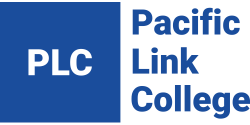Canadian Workplace Skills
Information and Communication Technology
Quick Links
Program Overview (Program approved by PTIB)
The more you know about Canada, the more confident you are communicating in English, the more you know about the fundamentals of business, the better you will be able to adapt to the Canadian work environment. The Canadian Workplace Skills programs provide students with an orientation to Canada, the education environment, English language and communication skills, and employment readiness. Each one of the programs focuses on different sectors of industry.
The Information and Communication Technology (Associate Diploma) program provides all of the areas described above as well as the knowledge of information and communication technology and how it contributes to a business’s success in various areas, such as communication, commerce, marketing, and other business processes. Today’s business place is not immune to technology and in fact, relies on IT in many ways to be successful. Employees who have a solid foundation in the IT utilized in their organization will have an advantage in gaining employment and being successful at their job. This program allows students to draw from past work experience, as well as their knowledge gained in ICT to apply to a Canadian business setting in virtually any industry sector, not especially but including the IT sector.
The courses are provided with a variety of activities via classroom, guest speakers, observations, in-class practice, and field trips.
Graduates will be able to comfortably communicate in various forms, work as a team or independently with a confidence of understanding their work environment and the employer’s policies and business practices, especially being comfortable with the technology used in their business’s processes and their job – both for relations with customers and co-workers, as well as the IT functions integrated into their job tasks. The graduate will be confident in their decisions for their future career path or educational goals.
The schedule and program end date are subject to change due to the student’s academic performance, course availability, academic breaks, additional electives, and study permit status.
Program Details
540 Academic Hours
| Theory Courses |
| CPDT089 | College Success Strategies and Orientation for Newcomers (20 hours) |
| CMNS117 | Business Communication (80 hours) |
| MATH103 | Applied Mathematics (80 hours) |
| GRPH116 | Introduction to Website Development (80 hours) |
| ITEC107 | Computer Systems Administration (100 hours) |
| ITEC138 | Programming Fundamentals (80 hours) |
| GRPH115 | Website Development (40 hours) |
| CPDT099 | Working in the Canadian Workplace (40 hours) |
Fee Structure
| Fees (in CAD) | International Students | Domestic Students |
|---|---|---|
| Tuition Fee | $9,900 | $7,900 |
| Assessment Fee | $100 | $100 |
| Application Fee | $1,000 | $250 |
| Administration Fee | $200 | $200 |
| Other Fee | $300 | $0 |
| Textbook Fee | $450 | $450 |
| Course Material Fees | $150 | $150 |
| Total Fees | $12,100 | $9,050 |
Tuition refunds are based on policy stated in the college’s enrolment agreement and bound by the Private Training Act Regulation.
Requirements
- High school graduates (grade 12) or mature student status (19 years or older at start of program)
- Mathematics requirement:
- Pre-calculus 12 with minimum grade of C (60%) or equivalent; or
- Foundations of Mathematics 11 with minimum C grade (65%) or equivalent; or
- PLC Pre Calculus assessment with minimum grade of 75%
- Language requirement (recommended for optimum success)
- Grade 12 level English with minimum “C” grade; or
- IELTS 6.5 (6.0 Academic) or equivalent (see table at end of this outline); or
- PLC English assessment test (70% minimum); or equivalent
- At least a secondary diploma from an English-speaking country (check Appendix)
- International students must comply with the requirements of Immigration, Refugees and Citizenship Canada in respect to study permits.
For more information on language requirements where internationally-recognised tests and other equivalencies are accepted, see the specific appendix at the end of this program outline.

